|
Alert!
Windermere argues in court that Windermere agents are not
agents of
Windermere!
That being the case, what is the nature of
Windermere's business? Are these the arguments of
people
you can trust?
Someone
You Can
Trust?
You are listening to a radio ad produced
by the National Association of Realtors, aired in
2006. To view
National Assn. of Realtors TV ad, click here.
This is the story of what happened when
we put
our trust in a Windermere Realtor.
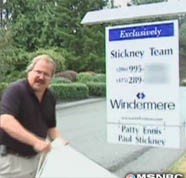
Paul H.
Stickney,
Realtor licensed to the broker at Windermere Real Estate
/SCA,
Inc. Windermere,
the
Northwest's largest real estate firm, boasts of "the
highest ethical
standards" and "uncompromising honesty and
integrity." As you
read, be reminded that Windermere is defending
Mr. Stickney in court.
Is your Realtor as trustworthy as
Windermere's
Mr. Stickney?
To watch Mr. Stickney explaining his case
to
MSNBC, click here.
If you have an
opinion you would like to communicate to Windermere, the
head office
may be reached at:
5424 Sand Point Way NE
Seattle, WA 98105
206/527-3801
wsc@windermere.com
To see the letters we are currently
sending
Northwest Realtors, click here.

Not with
a gun, but a Windermere Realtor license.
For years,
Windermere
Wall
Street provided a base of operations for Cheryl
Jonet to fleece the Seattle area public. When the
victims realized
they'd been robbed, Windermere's lawyers lied, saying that
Windermere brokers are not responsible for their agents'
actions.
For details, see the Windermere
Gallery. This is the Irony
and the Ecstasy of Windermere's
advertizing.
Peter
Doorish
lost hundreds of thousands of dollars to Jonet's schemes,
and so did Tom Mc Makin.
We are told
Jonet struck at least eleven other victims.

Cheryl Jonet (aka Cheryl Baumhofer) is
now
deceased, but the devastation she caused in the lives of
others goes on
and on. Windermere, meanwhile, has enjoyed the fruit
of her
commissions.
Isn't it about time the State of
Washington
prosecuted Windermere's lawyers for what amounts to
racketeering?
And how honest a reporting service is The
Seattle
Times? The Times refused to cover our
story
(reporter Susan Kelleher interviewed us in December, 2006,
but her
story was killed). The Times has refused to
follow up on
the Doorish or Mc Mackin stories, and the eleven
other leads
Mc Mackin provided. Yet The Times does
report other
real estate scams. See, for example, February 27,
2009, Mortgage-fraud
defendant
sentenced to seven years in prison. It seems The
Times looks the other way when the problem is
Windermere.

Rob McKenna, Washington Attorney
General, is styled as the top
consumer
protection advocate in the State of
Washington. He is
courageous enough to go after guppies, but
has no appetite for sharks, such as the nation's largest
savings and
loan, Washington Mutual. Meanwhile, from across the
continent,
New York's AG, Andrew Cuomo, noticed the problem with this
homegrown
Washington firm, and took
action.
We sought McKenna's help with our
renovation problems, and achieved the predictable result — zero.
In 2006, McKenna settled a law
suit against Ameriquest
Mortgage for "pennies on the dollar," according to
one attorney involved. Ameriquest was charged with
overvaluing homes in appraisals and inventing employment
and income information to "help" the borrowers qualify.
Who supports McKenna?
According to the Public Disclosure
Commission (PDC), McKenna accepted improper
campaign contributions
from the Washington Association of Realtors in his 2008
bid for re-election.
And talking about disclosure ...
McKenna's Assistant AG for Government Accountability, Timothy Ford,
is the former legal counsel for the Building
Industry Association of Washington
(BIAW). Ford also co-chairs the
AG's Eminent
Domain Task Force. So the former BIAW lawyer
decides eminent domain issues for Washington? How
convenient is that for the real estate development
community?
On June
15, 2009 we wrote to McKenna asking him to stop
DOL's collusion with
Windermere to flout Washington real estate law. We
included specific documented examples. McKenna's office responded
that McKenna supports DOL’s decisions on Windermere,
McKenna will do
nothing to enforce state law, and McKenna would defend DOL
if anyone challenged its decisions. On July 13, we asked our
AG correspondent why McKenna thinks it’s OK to allow
Windermere to sell a
contaminated meth lab
house to unsuspecting buyers without even a hint of
administrative
sanction.
On the one hand ...

Paul H.
Stickney, Realtor, authored an itemized invoice
dated June
9, 2004 in which he stated he "[p]rovided
comprehensive overview of costs associated with major
cosmetic and some
structural improvements to the subject home so DeCourseys
could compare
value when finished to other homes seen in the market
place that were
updated, because this home was unacceptable to DeCourseys
in as is
condition."
On
the
other hand ...

Brandi
Adams,
Windermere and Stickney's attorney from the Demco law
firm, told
the court on 11 June, 2007
that Stickney recommended his business partner, Bob
Trustworthy (footnote), for
"cosmetic work and non-structural work" only.
And that's what Stickney told the MSNBC
reporters, too -- that he
recommended Trustworthy's company to the DeCourseys for cosmetic work only.
The MSNBC show Undercover: Home Wreckers
was
aired in
October, 2007.
Stickney's 2007 statement was different
from his 2004
statement.
On
the
third hand ...
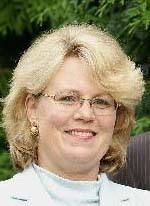
Michele
McNeil,
Paul H. Stickney's other attorney, heads up her own Skyline
Law
Group. On January 14, 2008 she argued to the
court that
Stickney's business partner, Bob Trustworthy (footnote),
"was quite capable of
handling the DeCoursey project. He has over 50 years
of
construction
experience, has built two homes for himself and four
hundred apartments
in Crossroads."
Stickney's 2008 statement reverts back to
his
2004 statement -- a complete 360 degree turn. -- Which
proves having
two law firms is not
necessarily better
than having one.
On September 26, 2006,
McNeil "ordered" us to take this web page down and told
us: "If anything
good comes of this case, I hope it is to put all
contractors and
realtors on notice never to do business with you."
She
also
accused us of attempting to "extort money" from Paul
Stickney.
In August, 2008, McNeil famously told our
lawyer that we should accept half our damages in
settlement because
"everyone knows [the
DeCourseys] are
out of money and can't afford to
go to trial."

Samantha Saul was a Windermere
agent on Whidbey Island.

Linda Gabelein was a Windermere
agent on Whidbey Island.
In 2005, Linda Gabelein and her daughter,
Samantha Saul (above), were working as real estate agents
licensed to Windermere's
Freeland
office on Whidbey Island. The office was
situated near Mutiny Bay, and owned
Windermere lawyer/broker
John Demco (cached).
Freeland was also the home town of Emma
Endicott, an elderly widow who suffered from bouts of
disorganized thinking. Emma knew Linda and Samantha
and trusted them. And Emma owned 24 acres of prime
waterfront-view property on Mutiny Bay ... Well now!
Without informing Emma's sons, Samantha
secretly persuaded Emma to give her power of attorney over
Emma's property. Then Linda and Samantha persuaded
Emma to sell parcels of land to them and their friends at
prices far below market value. For details, see the
Windermere
Gallery.
When Emma's sons found out, they
objected, but John ("So Sue Me") Demco defended his
agents' actions
and said the sales were final. Emma's sons were
forced to sue. Carolyn
Cliff of Langley, WA represented the Endicott sons,
while Demco
and his law firm defended the agents.
Emma's sons won: The trial court found
that Linda and Samantha exploited Emma's trust, thereby
violating Washington's
Abuse of Vulnerable
Adults Act (AVA).
The facts were now undeniable and the
community standards had been voiced. But Windermere
and
the Demco Law Firm know no shame. They appealed to
Washington Court of Appeals.
On February 4, 2008, the Appeals
Court
spelled it out again: Taking advantage of a
vulnerable old lady and cheating her of her land is
WRONG.
The land the Windermere agents swiped from Emma was
returned to her estate, and the agents had to pay legal
expenses.
Legally speaking, corporations are
persons, and they have personalities. Windermere's
personality is sociopathic:
Windermere has a grandiose sense of self and
feels entitled to certain things "by right." It
tells lies with ease. It sees others not as people,
but as
opportunities to be exploited. The end justifies the
means. Windermere lacks remorse, shame or guilt; it
has
no conscience. It can change its image as necessary
to avoid detection (see for example, the Windermere
Mission
Statement, the Windermere
Foundation, and Windermere's
Community
Service Day).
What happened when the Washington
Department of Licensing was informed of the facts and the
court
decisions? Acting more like part of a criminal
syndicate than government law enforcement, DOL announced
that Linda
and Samantha had not violated any Washington real estate
laws.
Question: What's the difference between
the Windermere/DOL/Attorney General combine and organized
crime?

Is it
safe to buy a home in Washington?
In 2003, Theresa McCormick bought a house in western
Washington. Her housing inspector did not report
1000
sq. ft. of the toxic black mold and soft rot fungus,
Chaetomium, growing in the attic. Ms. McCormick
moved into
her new home, soon became sick, and discovered the
mold. When she complained to the Washington Dept. of
Agriculture (at that time the supervisory agency of home
inspectors), she learned that Washington did not require
home
inspectors to mention mold in their reports. Read
Ms. McCormick's story here.
Learn about Melinda
Ballard's story
with different species of toxic mold in this CBS news
article and this
video.
New
York
State understands the problem. What's wrong
with Washington? As Ms. McCormick
notes, the corporate headquarters for Weyerhaeuser is
located right here in Washington. And we
wouldn't want people to get the idea that wood is a
less-than-perfect building material, would we?
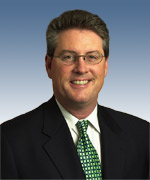
Tom
Merrick,
attorney for MacPherson's Property Management, Inc., filed
an anti-trust
suit against Windermere in 2001. Among other things,
MacPherson's
claimed theft of trade secrets. MacPherson
employees photocopied MacPherson's client list and wrote
to the clients
announcing they planned to move to Windermere. They
urged the
clients
to move their accounts to Windermere, also. Even
before they
quit
MacPherson's, these employees were listed on Windermere
websites
marketing their property management services.
During depositions, Merrick discovered
those
MacPherson employees were
former Windermere employees, sent into MacPherson's as
industrial
spies or moles. For details, see the Windermere
Gallery.

Marsha J. Pechman, United States
District Court Judge, ruled that MacPherson
client lists were not trade secrets because Windermere
could have
gotten the client's names and addresses from public
records.
But, Judge, if Windermere could get
the names and addresses from public records, why didn't
they? Why was Windermere allowed to
benefit from what most ordinary mortals call "theft?"
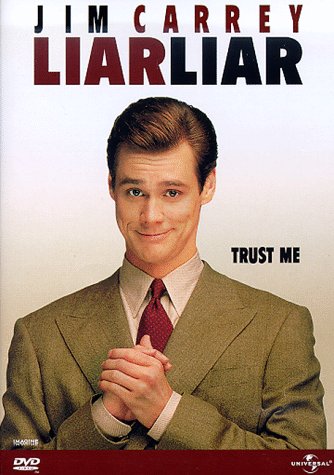
Liar Liar, starring Jim Carrey,
delighted movie goers by portraying the hilarious results
when a lawyer
was rendered unable to lie for just one day.

Ron Ward,
past president
of the Washington State Bar Association, was outraged by
judicial
tolerance of lawyer misconduct:
Lawyer
misconduct
and lack of professionalism
include
most notably:
- Lying (including material omissions verbally and
in pleadings directed to the court and to opposing
counsel).
- Engaging in intimidation tactics and abuse of the
discovery
process
(including badgering and attempted intimidation of
witnesses and
opposing parties and other "Rambo" techniques;
name-calling;
threatening CR11 sanctions; brow-beating pro se
litigants; failing to
timely file responsive pleadings; failing to submit
responsive
pleadings; concealing and destroying evidence; and
engaging in
cost-prohibitive litigation intended not to resolve the
dispute, but to
force opponents from the fray because of their inability
to afford
justice). ...
Mr. Ward also
provides a prescription for this professional disease:
A more
assertive
role by
judges is the single most
important factor in fostering professionalism. Judges are
the referees
in the justice process. There is no way to abrogate that
responsibility. It is clear that in many cases the
litigants are not
just going to work it out among themselves. Breaches of
professionalism
and flouting of the rules are akin to corporate policy in
some firms.
Unfortunately, it is their culture. - Ward, Pit
Bulls,
Pikes, and Pitchforks

Dark Vader had very few customer
complaints with the Better Business Bureau. This is
an amazing record, considering Mr. Vader's
methods. American business (and consumers) would do
well to discover how this was accomplished.
The corporate tool for a squeeky clean
reputation is the "dark clause." Windermere, for
example, asserts that the dark clause is of "utmost
importance" in a settlement
agreement. Blackbeard the Pirate was familiar
with the concept: "Dead men tell no tales."
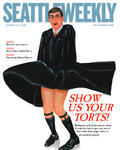
Seattle
Weekly,
October 15, 2008, published an
opinion entitled The
Way
We Elect Judges Is a Sham (Cached).
The article quotes a number of prominent judges from the
Washington
courts.
At the very minimum, we ask:
Shouldn't
candidates for
judicial office to required to publicly disclose
comprehensive and
detailed resumes of their careers? If a candidate
for judicial
office has
spent his much of his professional life defending other
lawyers who are
caught lying, cheating, and stealing, or real estate
agents who swindle
their customers, shouldn't the public know about that?
|
The Renovation Trap
*
Welcome to Our Story * Welcome to our home
*

8209 172nd Avenue,
N.E., Redmond,
Washington, 98052
“The Cottage”
|
We are Mark and Carol
DeCoursey, and we live
in Redmond, Washington. We are making our
renovation disaster known throughout the country because
we've
discovered grave public policy issues are at
stake, not just for the people of Washington, but for
homeowners
everywhere.
For years, a Windermere real estate
agent
had been funneling his trusting clients to a construction
company,
without telling his clients he had an interest in the
company, and that
the company was not registered, not insured, and not
bonded.
We, too, trusted that agent. He
put
together a home purchase and renovation package for us,
and brought the
construction company into the deal. As a result, we
have been
brought to the edge of financial ruin.
When we went to Windermere and asked
them to
make up the damage done, they told us we'd HAVE TO
SUE. When we
did, Windermere's in-house law firm used lawyer tricks to
stall,
obstruct, and to send our legal bills through the roof.
Windermere
Welcomes
Us to Washington
Back in 2004, we were new to
Washington. We wanted to buy a home but prices were
going through
the roof. Unless we acted soon, we'd be forced out
of the housing
market. We needed someone we could trust to help us
to move
quickly.
We thought we found that person in
Windermere Realtor Paul H. Stickney. Stickney had
been with
Windermere for about ten years and was on the Board of
Directors of
Redmond's United Methodist Church. He seemed like a
pillar of the
community. We trusted him.
We found a house in Redmond in a
perfect
location, on a big lot. The house was structurally
sound, but we
didn't want to live there! Built in 1969, it was
dark and dreary
. . .
Stickney suggested we might be able to
renovate the house within our budget. He said that
Bob
Trustworthy
of Trust Me Construction ("TMC", footnote)
was
the best contractor he'd seen in
his many years' experience. TMC had a unique pricing
structure
that
brought great value to the consumer, and TMC did superb
finish
work. Stickney suggested we meet with Mr.
Trustworthy at the
house and
get his opinion.
At the meeting, both Trustworthy and
Stickney had
many suggestions. Stickney wrote down the
suggestions and price
ranges for the work as Trustworthy looked on. Based
on the
evaluation
of Messrs. Stickney and Trustworthy, we decided we could
afford to buy
the
house and hire TMC to renovate it.
But Stickney didn't give us some
critical
information:
- Stickney didn't tell us he was one of the original
incorporators of TMC, a 20% shareholder, and its Vice
President. (Click here
to see Stickney tell MSNBC's Undercover: Home
Wreckers show that he didn't know he
was Vice President.)
- Stickney didn't tell us that he and Trustworthy were
partners in
a joint venture to turn six acres of Trustworthy's land,
located near
downtown Sammamish, into a shopping mall. Stickney
had taken out
a loan in his own name to improve the property, and
secured the loan
with the land. Trustworthy agreed to make payments
for Stickney
whenever he could. We later discovered that at the
time we met
with them in 2004, they were behind on their payments
and Stickney was
begging the lender to forgive a payment or two. As
we learned
recently, after our money began to flow to TMC, TMC
wrote several
checks directly to Stickney and some to the lender.
- Stickney didn't tell us that TMC was not registered,
bonded, or insured as required by state law.
Remember, Stickney
told us he'd seen TMC's work "for years." (Click here to see Stickney
telling MSNBC's Undercover: Home Wreckers show
that he "never paid
attention to the
licensing of any of my subs.")
- Stickney didn't tell us that TMC used unlicensed
workers to
do plumbing and high voltage electrical work, and that
they routinely
worked without building permits and inspections.
- Stickney did not tell us he had NEVER seen TMC do
structural work — even though Stickney recommended TMC
for structural
work on the home we were considering.
The results? The renovations were
a
disaster. Our home does not meet Code, and we cannot
obtain an
Occupancy Permit. We cannot sell it.
Trust Me Construction:
- Did structural damage to a house that was previously
structurally sound
- Used unlicensed persons to do all the plumbing
work.
The plumbing work does not meet Code. We've had
sewage gurgling
up from the downstairs bath drain
- Used unlicensed people to do some of the high voltage
electrical work. The electrical work does not meet Code.
In fact, the
metal drain in the upstairs tub had been electrified at
up to 110
Volts, AC — enough to kill you
- Installed roof trusses incorrectly
- Failed to build Code-required sheer walls
- Built an unstable kitchen/dining room extension
- And much, much more! See Construction
Defects
We Get
Sued
...
On April 1, 2006, we were served a
Summons:
V&E Medical Imaging Services, Inc. ("Automated Home
Solutions"),
TMC's high voltage electrical sub-contractor, filed
suit on us claiming they had not been paid by TMC.
(We had
already overpaid TMC's bid price by more than $60,000 —
there should
have been plenty of money to pay the electricians.)
In response, on April 4, we wrote a
courteous letter to all concerned — including Stickney and
Windermere. We told them what had occurred, and
asked that they
make up the damage done to us — without using the courts.
We Get
Sued,
We Must Sue ...
On May 18, 2006, we met with Windermere
executives and the Windermere attorney, John Demco, and
showed them the
documentation on this webpage. They did not argue
with any of our
facts, nor did they deny what Stickney had done. But
when we
asked that Windermere make up the damage, Demco told us
we'd have to
sue.
Why would a corporation like Windermere
force dissatisfied customers to sue? Because when it comes
to legal
fees, big corporations like Windermere can spend
dissatisfied customers
under the table. Windermere even has what amounts to
its own
in-house law firm, the Demco Law Firm. (John Demco
is a
Windermere broker).
When large corporations like Windermere
use
pre-tax dollars in court-room battles with individual
homeowners, they
have it made in the shade. So Windermere drags its
feet and
stalls by inventing bizarre excuses for not producing
witnesses for
depositions. Windermere also files idiotic and
meritless
pleadings, which of course must be answered, thereby
raising legal fees
even higher.
All Windermere and other large
corporations
need do is force the legal bills of private citizens
through the roof,
and wait their opponents to cave in.
This is how Windermere protects agents
such
as Stickney against the lawsuits Windermere insists be
filed.
Windermere Tells Customers,
"Suck Up Your Losses, Get On with Your Life"
It's their standard line — and they
strongly imply that is the only sane approach to
life. For example, referring to RATHOUSE victim Gary Kruger, Windermere
Atty. Matthew Davis wrote to Judge
Mertel on July 31, 2007:
To give you some context, I personally have been
dealing with Kruger now for four years now, and I have
come to know him fairly well. I think it would be
fair to say that Kruger is consumed with his animosity
toward Windermere. He has never accepted the
judgment in his 2002 case as final, and he maintains hope
that a large settlement with Windermere is just around the
corner. I have tried to convince Mr. Kruger
that he had his chance with the legal system and needs to
live with the result even if he disagrees with it. — RE:
Settlement Conference - Windermere v. Kruger, No.
05-34433-4 SEA August 1, 2007, bottom of page 2
But Windermere, John Demco, Demco Law
Firm, and Mr. Davis himself do not follow their own
advice. For every adverse decision they file a
"Motion for Reconsideration;" for every judgment, a
"Motion for Retrial;" and for every final judgment, an
appeal. The Gallery
tells the tale. Like a sociopath, Windermere is
never wrong in its own eyes, regardless of the facts of
the case.
How can an organization have "the
highest of ethical standards" when it is devoid of
self-correction?
Windermere's "so sue me" attitude . . .
Perhaps John Jacobi (he's a
former
banker and
founder of
Windermere) and his family are so thick with the
Washington good
ol'
boy network that Demco expects Windermere will never
get an adverse
decision. Or maybe Demco thought he could waste our
legal budget
with frivolous
filings and specious arguments so that we'd never get to
trial. (See
right column concerning the tactic used on Gary Kruger.)
The phrase, "so sue me," is the stuff
of
comedies, but you rarely hear
of anyone so litigation-eager in real life. So, why
did Demco
want us
to sue?
Civil Rule 11 of the Superior Court of
Seattle states: "(a) . . .
the signature of a party or an attorney constitutes a
certificate . . .
that the pleading, motion or legal memorandum . . . is not
interposed
for any improper purpose, such as to harass or cause
unnecessary delay
or needless increase in the cost of litigation . .
."
Well-heeled corporations famously
defeat
legal complaints by out-spending their opponents.
Windermere,
"the Northwest's largest real estate firm" violates
Rule 11 with
a vengeance.
Since we hired a law firm to represent
us in a lawsuit Windermere insisted we file -- at
the
time of this writing, January 2009 -- our legal bills
stand at
approximately
$500,000.00
That's
how Windermere handles customer complaints.
Windermere insists
the customer
sues, and then wipes the customer out. Yeah, that
works.
But should it? See RAT HOUSE example, right column.
If You Take Us to Court, We Wreck Your House
Hear
Attorney
Matthew Davis of
the Demco Law Firm (representing Windermere) and another
member of our
esteemed Washington Bar threaten to demolish our house if
we do not
give up our legal claims.
Windermere's DARK
Clause
Sometimes mistakes are made.
Sometimes
employees act improperly and customers are damaged.
A reputable
company apologizes, makes up the damage, and life goes on.
But things are different with
Windermere. From a few examples we have unearthed,
we find that
Windermere:
- Denies liability
- Conducts a protracted and exhausting legal battle that
the
average homeowner can't sustain
- Offers settlement at a fraction of the damage
- Refuses to cover the expenses of the legal battle
- Insists on a "dark clause" in the settlement contract
to
guarantee the world will never hear how Windermere
betrayed its promise
of The highest ethical standards ... uncompromising
honesty and
integrity. Mission
Statement, cached
In such fashion, Windermere's public
record is without blemish. Who has ever heard of a
problem? We might as well ask, who complains of the
mob? Those who might complain are keeping their
silence
in cement gumboots the bottom of the East River. Let
us have a look at some of Windermere's "cement gumboot"
contracts:
- Gary Kruger was sold a
property infested with rats. The agent had a
history with the
property and knew of the problem. Nevertheless,
the agent did not disclose the problem to Kruger.
The courts have rule
that a failure to disclose material information when
there is a duty to disclose constitutes fraud.
When Kruger sued,
Windermere exhausted his legal war chest, then had his
claims dismissed on summary judgment. (Full story.) The
facts of the case did not see the light of day.
When Kruger set about
to tell the public of his experience, Windermere sued
him for "trade libel" [case 05-2-34433-4 SEA].
Then Windermere offered
to settle the case, but included a "Dark Clause" to
forbid Kruger from further publishing the facts to the
public. See the
Kruger Dark Clause.
Kruger refused to sign, and Windermere dismissed its own
case.
- DeCourseys (webmasters of this page) had a
complaint and lawsuit against Windermere. On the
eve
of trial, Windermere
offered to settle for a fraction of the damages
($75,000 of more than $500,000 in damages) with no
compensation for legal costs. A "fundamental" part
of the
proposal ("of utmost importance to Windermere") was the
infamous Dark Clause. See the Dark Clause from
that proposed
settlement.
Note in particular the phrases
asserting that the Dark Clause is of "utmost importance"
to
Windermere. A single mention of the facts of the
incident in question could cause "damage" to Windermere in
the
amount of $25,000!
The reader must wonder, how would the
daring escape of a lone fact cost Windermere these
terrible losses? Would so many potential customers
reconsider their decision to use Windermere if they had
all
facts in hand?
So You're Thinking of Suing Windermere?
As mentioned elsewhere, you should be
aware that Windermere will try to waste you as the
Russians wasted
Napoleon's army, avoiding pitched battle and letting the
Russian winter of the courts starve you out.
Windermere has a stock
line of arguments they use throughout their cases,
including such brilliant legalisms as:
A Windermere agent is
not an agent of Windermere
and
The Washington Law of
Real Estate (co-written by Demco) exempts an
agent from fiduciary duty
But you should know also that
Windermere has been too clever by half sometimes, dancing
out of the legal
frying pan and into the fire. A litigant would do
well to study the history of Windermere's arguments.
We have some
information that might help. See Forced to Sue a
Windermere Franchise, Broker, or Agent?.
Department of Licensing Defies Washington Law
It is a truism: Regulatory
agencies
often become captives of the industries and professions
they are
convened to regulate. Historian Gabriel Kolko's
seminal work, The
Triumph
of Conservatism, shows how big business uses
regulatory
agencies to stabilize the market and give themselves a
competitive
advantage.
Many government agencies forget that
they
exist to protect the public. Instead, they work to
advance the
agendas of the industrial, business, and professional
interests they
are supposed to oversee.
*
* *
In Vancouver, Washington, a doctor
doing
gynecological examinations had been touching the genitalia
of his
patients with his ungloved hand and taking photos.
When one
abused patient drove 160 miles to testify at his
Department of Health
disciplinary hearing, she was told she was not needed and
was sent
home. The doctor got off with a slap on the wrist,
and was even
allowed to edit the Department of Health's disciplinary
order.
See Weak
regulation
fosters more abuse/The state allows hundreds of doctors,
counselors, others to keep practicing despite their
sexual misconduct, The Seattle Times
Post-Intelligencer "License to Harm"
series, April 23,
2006 (cached).
*
* *
And what of the Department of Licensing
in
the Paul H. Stickney/Windermere Real Estate/SCA
matter? Despite
the Jury Verdict of October
30 and
the Judgment
of
November 14, DOL refuses to take any disciplinary
action on Paul H.
Stickney and Windermere for failing to disclose Stickney's
egregious
conflict of interest. DOL even asserts that real
estate agents
and brokerages are not bound by Washington's Consumer
Protection
Act. In reading this whitewash, we must remember
DOL's disclaimer
that "We [DOL] do not have the authority to ... make
judicial
determinations. Our remarks to not constitute legal
opinion." (May 8, 2007)
Thanks to the Washington State DOL,
Windermere and Stickney continue to do business among a
trusting
Washington public. Notice the phrase used by the
DOL: in the May 8, 2007
letter:
"...
the
evidence does not rise to the level to support the
issuance of
charges against Mr. Stickney's real estate license."
In 2006, the SEC declined to look into
Bernard Madoff because:
"...
because
those violations were not so serious as to warrant an
enforcement action."
[See Madoff
Misled
SEC in '06, Got Off, The Wall Street Journal,
December 18, 2008, (cached
from
SiliconInvestor); SEC
report cached from wsj.com]
Notice the similarity of the excuse
used by
the DOL in the Windermere case to the excuse used by the
SEC in the
Madoff case.
Here is the history
of
our correspondence with the DOL. In
particular, see DOL's December
8, 2008 response to the
Superior Court judgment and our
December
27, 2008 letter to Ms. Liz Luce, Director of the
DOL.
*
* *
In another case, Windermere
demonstrated intimate knowledge of the DOL's day-to-day
activities when the Windermere attorney, Matt Davis, wrote
to the court on July 31,
2007. Davis wrote that RAT HOUSE
victim, Gary Kruger (see above in
right column) "has hounded the Department of
Licensing without success to pursue disciplinary actions
against
Windermere." (Page 2,
paragraph 5, emphasis added.)
Isn't that amazing? DOL complains
to Windermere about a member of the public who is trying
to
get DOL to do its lawful job!
Given so many examples of complicit
watchdogs, would anyone be surprised to learn multiple
law enforcement agencies are looking the other way to make
things easy for the development/real estate/construction
industry? See Home
Building
boom relies on illegal workers, The Seattle
Times Post-Intelligencer, September 17, 2006 (cached).
Other recent reports of regulatory
outrages:
- Jailed
doctor
keeps license, Seattle Post-Intelligencer,
July 6,
2007 (cached).
- Revenge,
threats,
coddling alleged, USA Today, April 4-6,
2008 (cached).
- Scathing
report
says chief interfered with cop probe, The
Seattle Times,
June 19, 2007 (cached).
- Cop
'escaped
punishment', Seattle Post-Intelligencer,
July 2,
2007 (cached)
- District
ignored
warnings, then silenced girls fondled by teacher,
Seattle
Post-Intelligencer, October 22, 2006 (cached)
Let's see how the DOL responds to a Writ of Mandamus.
Windermere and Conflict of Interest

Rodney Tom is our state
senator. He is an associate
broker at the Kirkland-Yarrow Bay Windermere
office. In 2007, as a newly elected senator, Sen.
Tom had impressive array of committee assignments: vice
chair of the Early Learning & K-12 Education
Committee; vice chair of the Judiciary Committee; member
of the Ways and Means Committee; and member of the
Consumer Protection and Housing Committee.
Consumer Protection and House
Committee? As a Windermere associate broker,
Sen. Tom
boasted of having sold entire sub-divisions for his
builder clients. So Sen. Tom had a seat on the very
committee
entrusted with protecting consumers from people like Sen.
Tom's clients!
We regarded Sen. Tom's seat on the
Consumer Protection and Housing Committee as a conflict of
interest. We made our opinion public (February
2007
letter to Editor of Post-Intelligencer), and
we urged him to step down.
Until we attracted public attention to
Sen. Tom's questionable committee membership, Rodney Tom's
personal web site included a page entitled "Meet Rodney Tom,"
which we have
cached here for posterity. The original page is now
gone.
On that webpage, Sen. Tom stated that
Windermere was "the leading real estate firm in the
Northwest." That is, Tom reminded us that Windermere
is ONE company. Its branch offices operate under the
same trade mark, have the same company logo, and share the
same company-wide pension fund. They have a
company-wide standards and practices committee, they use
the same forms and the same signs, and share the same law
firm
and the same insurance plan. Windermere attorneys
have argued in court that Windermere is one company and
the
court has accepted that argument. (PDF)
In calling Sen. Tom's seat on the
Consumer Protection and Housing Committee a conflict of
interest,
we caught Windermere's attention. During our July
18, 2007 deposition, Windermere's attorney Matt Davis
questioned
us closely on the subject. He asked us WHY we
thought Tom's Consumer Protection and Housing Committee
assignment
was a conflict of interest. Our opinions on
political issues are none of Windermere's business, of
course, but
Davis' interest was revelatory.
Sometime in the early months of 2009,
the Consumer Protection and Housing Committee was
disbanded. We now have the "Financial Institutions,
Housing, and Insurance Committee," and the "Labor,
Commerce,
and Consumer Protection Committee." Sen. Tom does not have
a seat on either committee.
As a member of Washington's
legislature, will Sen. Tom be concerned that the
Department of Licensing flouts
the law with regard to Windermere? Will Sen. Tom
permit his own vested interests in Windermere to taint his
judgment on this
issue? We are hoping he takes the honorable
path. On April 15, we wrote to Sen. Tom suggesting
he use his Senate
influence to have a Writ of
Mandamus filed on the Department of Licensing.
On June 11, he
still had not answered, so we wrote a follow-up letter.
On January 24, 2009, Senator Rodney Tom
called us at home, refused to help with the general
situation, and
denied that he has any association with Windermere.
See an accounting of this call
and our
response.
Washington — Democracy or Corporatocracy?
Government of the people, by the
people, for the people seems to have been replaced by
government
of the corporation, by the corporation, for the
corporation. Unequal
Protection: The Rise of Corporate Dominance and
the Theft of Human Rights by Thom Hartmann tells the
story of the loss of democracy in America.
In the contemporary USA, powerful
corporations have assumed the role of feudal lords and
citizens
have been reduced to serfs. The Renovation Trap
website documents some of the destruction inflicted upon
citizens by the real estate/development lobby in the
Northwest.
But there are other stories. See
National Public Radio's two part series illustrating the
power of the real estate development community in Texas,
where the lobby appears to own the legislature and the
courts.
- Part
I: Did Builder's Clout Trap Couple In Dream Home?
- Part
II: Critics: Texas Agency Favors Builders Over
Buyers
Who Chooses Washington's Legislators, Administrators,
and Judges?
Windermere acts as though it owns the
state. Its victims are many, and its predations
bold. See
Windermere-Victims.com.
Why do they think they can get away with what they are
doing? Not the Governor, nor the Attorney General,
nor the Department of Licensing, nor the mainstream
Washington press will
cast a critical eye at Windermere, despite the abundant
documentation of its wrongdoing.
Evidence indicates that powerful
interest groups — banking, land speculation, and real
estate
development interests — play key roles in choosing whom we
elect. It has been said that these interest control
our
legislature, our executive branch, and our
judiciary. Here are some articles of interest.
- Realtors
group accused of campaign violations, The
Seattle Times, December 9, 2008 (cached)
- Builders
lobby aims its cash at Gregoire, Seattle
Post-Intelligencer, July 10, 2008 (cached)
- Rossi
linked to builder fundraising, Seattle
Post-Intelligencer, October 1, 2008 (cached)
- Special-interest
money fueling judicial races, Seattle
Post-Intelligencer, September 16, 2006 (cached)
- Panel
rules on complaint against Hunt's campaign, The
Olympian, August 14, 2008 (cached)
- Judicial
panel ethics group rejects BIAW complaint, The
Olympian, August 13, 2008 (cached)
- Ford
should reject ad, claims group, The Olympian,
August 8, 2008 (cached)
- Judicial
race funding scrutinized, The Olympian,
November 24, 2008 (cached)
But What of Truth?
Washington Supreme
Court says it's OK for politicians to lie about factual
matters to the Washington public. Will the Supreme
Court say it's OK for real estate companies to lie, too?
In a famous case in California in 2002, Nike, Inc. argued
that as a corporation, it had all the Constitutional rights
of
a "person," including the right to lie in its
advertizing. The Supreme Court dodged the question by
ruling
that Nike's statements were
"commercial speech" rather than Constitutionally protected
speech.
Not all legal experts agree with that
citizens and corporations have a right to lie.
"Publicly support those judges who demand truthfulness and
honesty from all who appear in court and who impose
meaningful sanctions for offenders." — Dale R. Harris,
President, National Conference of Bar Presidents, Do
Lawyers Lie?, published in
The Colorado Lawyer September 2000 Vol. 29, No. 9
[Page 19]
But what happens when you tell the
Presiding Judge of the King County Superior Court that a
lawyer is
lying, and offer the judge evidence?
Judge Bruce Hilyer's office returns
your letter and documentation, and tells you he's not
interested! (Upcoming article.)
Guest Editorial from Judges Above The Law
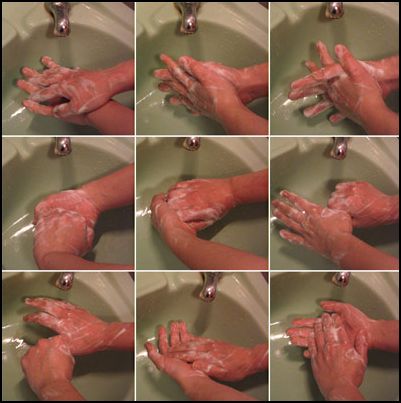 One hand washing the other
One hand washing the other is the successful
formula for
good ol' boy networks everywhere
Until three years ago, Michael
Kathrein
truly believed courtrooms were places where
judges listened to the facts carefully and decided cases
honestly.
Then he got the lesson of his life.
A judge in his case could, and did,
cheat. Opposing counsels could, and
did, cheat. And once they coordinated their
cheating, no fact,
law or
procedure could save him. He was set up to lose.
When you think of a "corrupt" judge,
you may
think of one who trades
rulings for cash. As far as we know, that obvious
sort of
corruption is
rare. You must appreciate however, that corruption
may take
subtle but
equally destructive forms.
Among other things, a dishonest judge
can
ignore evidence, twist rules
and procedure, obstruct the record, retaliate,
manufacture facts or
ignore others, allow infirm claims or dismiss valid
ones, deny
admission of evidence prejudicial to the favored party,
suborn perjury,
mischaracterize pleadings, engage in ex parte
communication and
misapply the law.
When he or she does these things
intentionally, (motivation is a
separate issue) he commits a crime. Petty or
grand, the acts are
still
crimes. It takes surprisingly little to "steer" a
case. More
...
|
NEWS!
The Washington Messenger
"Don't Blame
the Messenger"
- November
8, 2010: Court of Appeals trounces Windermere in
DeCoursey case
- March,
19, 2010: "Wide Open Government -- For Big
Business." Flier distributed to WA Attorney General's
Office and others.
- February
15, 2010: "Crime Syndicate in Washington?" Flier
distributed to WA Legislature and others.
- 7/24/09: Option-based
enforcement - McKenna’s Asst. Atty. Gen.
Campbell dodged
our questions: "My role is to give the Department
option-based advice, but any advice I give my client
is subject to the
attorney-client privilege." And we thought the
AG's clients were the people of Washington.
- 7/13/09: Meth
lab? Why not? - We ask Atty. Gen. Rob McKenna’s
office why it's OK
for Windermere to sell a contaminated meth
lab as a residence without disclosing the facts
to the buyers — and why it's OK for the Department of
Licensing to sit by and do nothing.
- 7/2/09: Laws?
What laws? - Atty. Gen. Rob McKenna’s office
writes that it supports the
decisions of the Department of Licensing, it will do
nothing to ensure that state law is enforced by the
DOL, and it will defend
the DOL in court if anyone challenges DOL decisions.
- 6/15/09: Dear
Rob, can you help? - We write to Atty. Gen. Rob
McKenna charging
that the Department of Licensing is in collusion with
Windermere to flout Washington real estate law; we ask
McKenna to help
enforce the law.
- 6/24/09: State
Senator Rodney Tom Calling - Sen. Windermere Tom
called us at home, accused
us of lying about him, refused to help break up the
Windermere/DOL syndicate, and denied he is a
Windermere associate
broker. Our
response.
- 6/11/09:
Our letter of reprimand to Sen. Rodney Tom.
Eight weeks have passed
since our April 15
letter asking for Tom’s help enforcing state law
on the Windermere
syndicate. Tom has not answered despite numerous
follow-up telephone calls and requests for an
appointment.
- 5/21/09: Gov.
Gregoire - In answer to our complaint about DOL
complicity with Windermere, Gregoire allows DOL to
speak for her. We note that she appointed three
Windermere agents to the state Real Estate Commission.
- 5/15/09: Will
DOL give up its secrets? - The Department of
Licensing has
responded to our request for documents on some of the
culpable agents in the Windermere
Gallery. The DOL wants another four weeks
to sanitize the files, but we insist on
knowing why DOL gave these licensees a clean
bill of health. See DOL section
below.
- 5/12/09: The
Windermere Gallery - How does Windermere compare
against its advertized
lofty ideals? We examine some recent cases —
names, dates, and victims.
- 5/2/09: The
Windermere Cup - Members of Victims of
Windermere (VOW) and the
Society for Ethical Treatment of Homeowners (SETH)
were out in force distributing the Windermere
Way flier to the crowds. (Seattle Weekly
blog)
- 4/15/09: Writ
of Mandamus - We like Senator Rodney Tom.
But does
Windermere's senator have the uncompromising
honesty and integrity to require the Department
of Licensing to enforce the
law on Windermere?
- 3/14/09: Blocking
access to the courts - Possibly in reaction to
our case, the
Washington House of Representatives (many members of
which are beholden to the real estate/development
lobby) tried to block home
buyers' access to the courts. See The Messenger,
March 14, 2009.
- 3/10/09: AIG
backs Windermere's bond - The (in)famous
insurance firm AIG
has stepped up to the plate to guarantee Windermere's
$1.5 million bond. A supersedeas bond is
a guarantee from a
judgment debtor that if an appeal is not successful,
the judgment will be paid promptly in full. But
AIG? ... Ah,
well.
- 3/3/09 Twice
is even better! - Windermere announces a second
time it
is appealing the verdict, this time with "Super
Lawyer" Robert
R.
Hickman of Reed McClure, AIG's law firm in
Washington.
- 1/23/09 Attorney
fees awarded - The trial judge awarded
DeCourseys more
than $508,427 in costs and attorney fees. (Seattle
Weekly blog)
- 1/21/09 Enough
is never enough! - Windermere announces it take
the
case to the Washington Court of Appeals.
- 12/5/08 Let's
do it again - Windermere asked the court to
restart the trial from
beginning, or else roll back the award. Among
other things, Windermere alleged the jury instructions
had the wrong
caption. What the hey, they had to ask.
- 10/30/08 The
verdict is in - The 12-man jury found Windermere
and Stickney
breached fiduciary duty and violated the Consumer
Protection Act, and awarded us $522,200 in damages,
case
no. 06-2-24906-2-SEA. (Seattle Weekly)
- 10/24/07:
Our story featured on MSNBC Undercover: Home
Wreckers - debuted October 24, 2007 and rerun at
least eight times since.
Windermere
Customer Service

Windermere has a
unique business plan (or maybe not so unique):
- Windermere holds that the agents are independent
contractors, not agents of Windermere
- Windermere brokers do not learn of a transaction until
after settlement — Windermere brokers know only the
papers the agents
put in front of them
- If a customer has a complaint, Windermere calls in the
lawyers
- As Windermere lawyer John Demco said, you'll have to
sue
- And when you sue, Windermere will use every legalistic
stall and obstruction they can. They will waste
your money on
frivolous filings and bogus claims, sending your legal
bills through
the roof
- Demco's lawyers claim the brokers are not answerable
to
Windermere clients for improper conduct of the agents
- Demco argues that TMC's government documents naming
Stickney as Vice President are "just a piece of paper."
- Demco also argued that our damages were not caused by
Stickney lying to us and failing to disclose his
conflicts of interest
— our damages (if any) were caused by poor
construction. That's
like arguing that the gunman didn't kill the victim, the
bullet did.
- When dissatisfied Windermere customer Gary Kruger
spoke
publicly about his experience, Windermere sued him for
"trade
libel." What else could a self-respecting
billionaire corporation
do?

Learn about the RAT HOUSE
a Windermere agent sold to unsuspecting customer, Gary
Kruger. Documents show the Windermere agent, George
Rudiger, knew of the home's prior rat history when he sold
the house, but did not warn Mr. Kruger. For details,
see the Windermere
Gallery.

George
Rudiger, Windermere
agent, says of himself, "you need an experienced,
knowledgeable
professional to get the job done."
When Kruger moved into his newly
purchased house, he suffered a severe
allergic reaction and then discovered the rat
problem. A rat
abatement specialist found rat nests behind the walls,
dozens of dead
rat carcasses, electrical wires chewed by rats (causing a
fire hazard),
and subfloors and interior walls soaked with rat
urine. The
stench was so bad, the pest man said respirators should be
worn by
anyone working on the house.
Kruger hired an attorney and sued
Windermere
Northeast, Realtor George Rudiger, and broker Joan
Whittaker [case
02-2-28184-2 SEA]. He
spent $40,000 on legal fees.
Windermere then filed a summary
judgment motion and Kruger's attorney demanded another
$25,000. But Kruger had run out of money and
couldn't pay.
So his attorney dropped him and the judge threw out
Kruger's claims,
despite the facts of the
case.
When Kruger spoke publicly about
what had
happened,
Windermere sued him for defamation and "trade
libel." In both
cases, Windermere was represented by Matt Davis (see
below).

Vila Pace-Knapp trusted Windermere,
but
never again. In 2001, Windermere Agent Dick
Pelascini offered to
save her home from foreclosure. The home soon
belonged to
Pelascini, and Pace-Knapp and her handicapped son were
evicted (see Trial
Brief). "She ultimately lost the home to the
speculators who
set her up," said Judge Barnett. Pace-Knapp won the
case in
court (Seattle
Weekly,
April 01, 2008).
Windermere appealed the decision, but
still
failed to get the desired dismissal. In December,
the Washington
Supreme Court refused Windermere's petition to review the
case yet
again. For details, see the Windermere
Gallery.
Believe it or not, the Windermere agent,
Dick
Pelascini, still works as a Realtor for Windermere
Bellevue Commons.

Matt Davis, of Demco Law,
represents
Windermere and Paul Stickney. In papers filed with
the court,
Davis asserted that "Stickney
is not an agent for Windermere." If Davis is
telling the
truth, the curious reader might
wonder whose
listings
are these? And why is the Windermere legal
counsel
representing him? For details, see the Windermere
Gallery.
Davis made the same argument when
defending
Realtors David Hopkins and Joann McCann, agents of
Windermere
Northeast. The two Realtors with their broker, Joan
Whittaker, were accused by dissatisfied customers
Julie Campbell and
her husband of forging a legal description of their
land: In the very pleading in
which Davis was defending the agents, he denied that
Windermere had "any
agency relationship with" the agents.
While Davis dishes up such nonsense to
the
court, he
tries to get real evidence ignored. In our case,
Davis
asked the
court to strike two of our Declarations from the court's
consideration. The court decided against
Davis. To see the
Declarations Windermere wanted ignored,
click here
and here.
Of course, we had to answer Davis'
motion, and
up go the legal costs. When Davis did not get the
decision he
wanted, he asked the court to characterize comments from
the bench as
rulings, and THAT motion had to be
answered. And up, up, up go the legal costs.
For more information on the Windermere
legal
tactics, see You Take Us to
Court? We
Bust
Your House!

Dr. Jekyll had "the highest of
ethical
standards" and "uncompromising honesty and
integrity." But what
of Mr. Hyde? (image: Fredric March, 1931)
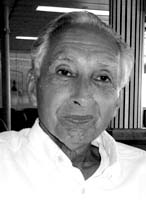
John ("so sue us") Demco,
founder of the Demco Law Firm, legal counsel to the
Windermere corporate hydra. For details, see the Windermere
Gallery.

Gagging dissatisfied
customers is of "utmost
importance to Windermere," according to the Demco
Law Firm. See Windermere's Dark
Clause in the central panel.

Douglas
A. Schafer, a
Washington lawyer, discovered that his client was
buying favors from a Pierce Count Superior Court
judge. Schafer blew the whistle on the judge to the
Supreme
Court, which then
had Schafer suspended from the Bar for violating
attorney-client privilege.
Washington - a state where no good deed
goes
unpunished.

Washington
Supreme
Court Justice
Bobbe Bridge was
arrested on charges of drunken driving and hit-and-run
after
leaving the scene of an accident about a mile from her
home in the
Magnolia neighborhood of Seattle. See Seattle
Post-Intelligencer, March 2, 2003, Bridge
arrested
for drunken driving
Bridge admitted
and apologized
for her actions, but continued on the Court for
about four years, to retire
in 2007. Charges against Bridge were dismissed
by
the District Court.
Bridge is also noted for creating
double-barreled
factoids when she wrote a majority decision denying a
motion
brought by Tacoma lawyer Doug Schafer (above).
Schafer's law
license was
suspended for six months when he reported that a
Pierce County
judge was on the take. He appealed the
decision. In the opinion,
Judge Bridge wrote:
"Judge
Anderson
ruled that Schafer's petition was frivolous and without
merit, and
assessed $ 1,000 in attorney fees against Schafer's
client."
Schafer asserts there was no such ruling,
and
that he had written no such petition. See To
Kill A Messenger

Justice Brent D. Benjamin of the
West
Virginia Supreme Court refuses to recuse himself from $15
million case between two coal companies. Justice
Benjamin cast the
deciding vote in the case in favor of the larger company —
having earlier accepted more than $3 million in campaign
contributions from the CEO of the same company. With
accusations of impropriety from another judge on the same
court and cries
of outrage from coast to coast, the case went to the
Supreme Court of the United States. That court decided
that Judge Benjamin
should have recused himself.
"If the public believes that judges can
be bought," said Keith R. Fisher, a lawyer for the
American
Bar Association, "that is really poisonous and undermines
public confidence in an independent judiciary."
Public confidence may be very important
to Mr. Fisher (since he is in the trade), but for the rest
of
us, a judiciary free of corruption takes higher
precedence.
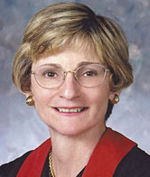
Edith Hollan Jones, Chief Judge of
the
United States Court of Appeals for the Fifth Circuit, told
the Harvard
Law School in a February
2004
address that the American legal system is corrupt
beyond
recognition.
"An increasingly visible and vocal number
[of
lawyers] apparently believe that the strategic use of
anger and
incivility will achieve their aims. Others seem
uninhibited about
making misstatements to the court or their opponents or
destroying or
falsifying evidence," she claimed. "When lawyers
cannot be
trusted to observe the fair processes essential to
maintaining the rule
of law, how can we expect the public to respect the
process?"
She also stated, "Lawsuits are brought
that
ultimately line the pockets of lawyers rather than their
clients.
The lawsuit is not the best way to achieve social justice,
and to think
it is, is a seriously flawed hypothesis. There are
better ways to
achieve social goals than by going into court."
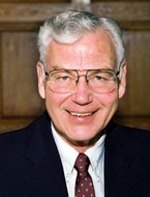
Roger C. Cramton, Professor of Law
Emeritus at Cornell University, wrote in the 1970s that
"the ordinary
religion of the law school classroom" is "a moral
relativism tending
toward nihilism, a pragmatism tending toward an amoral
instrumentalism,
a realism tending toward cynicism, an individualism
tending toward
atomism, and a faith in reason and democratic processes
tending toward
mere credulity and idolatry."
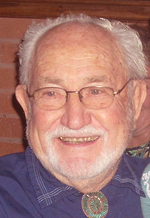
John F. Molloy, former Chief Judge
of
the Arizona Court of Appeals, is the author of The
Fraternity:
Lawyers And Judges In Collusion. In that
book, Judge Molloy lamented usurpation of power by the
legal
Fraternity.
"Judges were simply not intended by our
Founders to have the power to make laws. It is
impossible for any
rational person to read our nation's Constitution without
finding a
clearly expressed intent that the powers of government be
apportioned
between its three branches, the legislative, the
executive, and the
judiciary. The lawmaking power was crystal clear —
not delegated
to judges." (pg. 17.)
Molloy also lamented that the legal
fraternity
has fallen away from pursing the ideals of truth and
justice to become
a money-making ventures, with top spoils going to the
cleverest
debaters.
"The unique symbiotic relationship
between
bench and bar has resulted in making a game of our trials,
a game
played by clever and expensive lawyers whose skills in
technical rules
and in salesmanship control the outcome. Today's
judges do not
interfere with the games lawyers play. In my early
contacts with
our judicial system, I witnessed much more of an
independent,
truth-seeking attitude from trial judges ..." (pg. 14.)
|